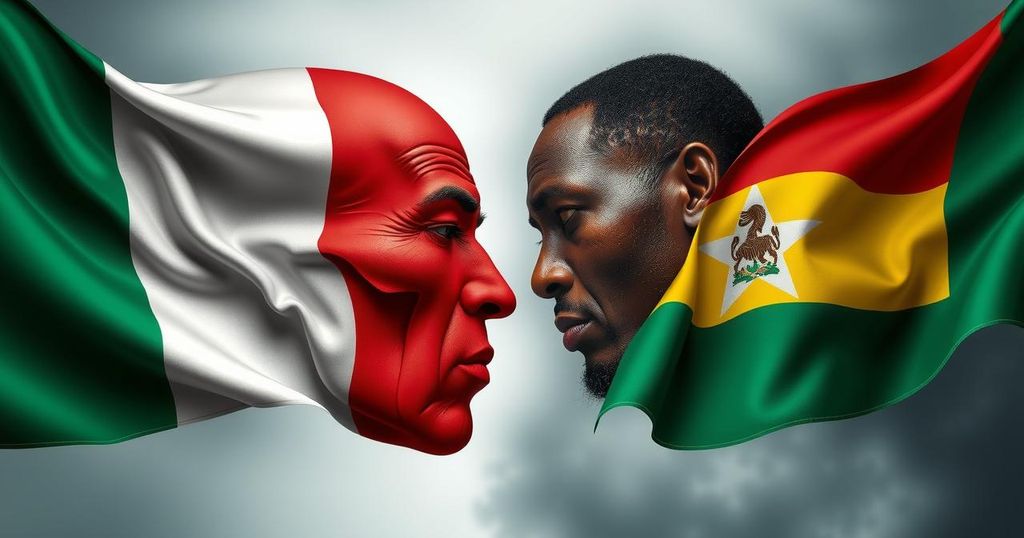The electoral processes in Nigeria and Ghana sharply contrast, with Ghana demonstrating a successful and participatory electoral system, highlighted by former President John Mahama’s recent election victory. Nigeria, on the other hand, struggles with severe electoral issues that compromise public trust. The article advocates for Nigeria to emulate Ghana’s democratic practices to restore confidence in its electoral system.
The stark contrast between Nigeria and Ghana’s political landscapes, especially regarding their electoral processes, is striking despite both nations attaining independence in close proximity. Recent developments in Ghana illustrate a robust and commendable electoral framework, where citizens actively participated in the electoral process on December 7. Former President John Mahama emerged victorious, amassing over 56 percent of the votes, while Vice-President Mahamudu Bawumia graciously conceded despite counting still underway, showcasing exemplary statesmanship that could serve as a model for Nigeria.
In contrast, Nigeria continues to grapple with a fractured electoral system marked by electoral irregularities and declining public trust. While the Independent National Electoral Commission (INEC) offers insights into Ghana’s elections as a learning opportunity, it starkly contrasts with the harsh realities of Nigeria’s electoral disenchantment. The 2023 elections, scrutinized by monitor groups, highlighted a severe breach of democratic standards, leading to diminished confidence amongst the citizenry. Historical patterns of manipulation and violence signal an urgent need for reforms in Nigeria’s political approach to foster democratic integrity and citizen engagement.
Ultimately, the electoral systems in both countries underline the need for respect towards democratic principles and the role of civil society in ensuring electoral fairness. Ghana’s commitment to democratic norms reinforces the potential path Nigeria must undertake to revitalize its elections and enhance voter confidence. As witnessed historically, the electorate in Ghana has consistently held governments accountable, while Nigeria has struggled with a cyclical return to incompetent political figures, thereby diminishing the fabric of democratic governance as a whole.
This article discusses the significant differences between the electoral experiences of Nigeria and Ghana, two West African countries with similar historical timelines regarding their independence. The political evolution in Ghana is characterized by healthy competition and democratic adherence, as illustrated by the successful recent elections, whereas Nigeria faces ongoing challenges with electoral integrity and public trust. Both countries’ electoral processes reflect their respective political climates, with Ghana setting an example of civic engagement and accountability.
The disparities in electoral processes between Nigeria and Ghana highlight the need for Nigeria to adopt similar democratic practices to restore public confidence in its political system. Ghana’s recent elections demonstrate a commitment to democratic values through active voter participation and the peaceful transfer of power. Nigeria’s persistent electoral challenges indicate an urgent need for reform to ensure transparency and accountability, fostering a political environment that prioritizes citizen welfare over party interests.
Original Source: punchng.com







